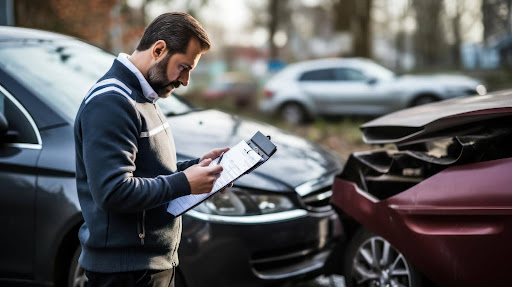The Truth About Car Accidents in Tempe (and Why Legal Help Isn’t Optional)

If you’ve been in a crash in Tempe, you already know the chaos that follows. Your car’s wrecked. You’re in pain. You’re trying to make sense of the police report while insurance companies circle like vultures. In moments like this, you need more than advice—you need a Tempe accident attorney who knows how to fight back and protect what’s rightfully yours.
And if you think you can handle it all on your own, you’re not alone. But every day, people accept lowball settlements, sign away their rights, or delay treatment—just because they didn’t call a Tempe accident lawyer early enough. Don’t let that happen to you.
Why Accidents in Tempe Are More Common Than You Think
Tempe’s streets are packed. ASU traffic. Rideshare pickups. Construction zones. Out-of-town drivers who don’t know the lanes. It’s a perfect storm for rear-end crashes, left-turn collisions, side-swipes, and distracted driving disasters.
Some of the worst accident hotspots in the city include:
- Apache Blvd & Rural Rd
- University Dr & McClintock
- Loop 101 on-ramps
- Broadway Rd during rush hour
Even if you’re the safest driver on the road, that doesn’t protect you from someone else’s bad decision.
Injuries Can Take Days to Appear—But the Clock Starts Immediately
It’s easy to walk away from a crash feeling “okay”—only to wake up two days later barely able to move. Concussions, back trauma, nerve damage, and soft tissue injuries often take time to surface. If you delay treatment, insurers will use that gap against you.
That’s why it’s crucial to seek both medical and legal help as soon as possible. The longer you wait, the more leverage you give the other side.
Here’s How Insurance Tries to Win
Insurance companies aren’t just playing defense—they’re playing offense. The moment your claim is filed, their team gets to work. They’ll:
- Call you for a “friendly” recorded statement
- Push you to accept a fast (low) settlement
- Look for reasons to deny or delay your claim
- Try to assign you partial blame to reduce your payout
Without legal protection, most people say the wrong thing, accept too little, or give up entirely. An experienced Tempe accident attorney knows how to shut that down before it starts.
What’s Your Case Really Worth?
You’re not just owed a check for your bumper or a couple urgent care visits. Your claim may include:
- Emergency medical treatment
- Follow-up care and physical therapy
- Lost wages or reduced work capacity
- Pain and suffering
- Vehicle repairs or replacement
- Future costs related to your injuries
But guess who doesn’t tell you that? The insurance company. Only your lawyer will lay out the full picture.
What If You Were Partially at Fault?
It doesn’t disqualify you. Arizona’s comparative negligence system means you can still get compensation even if you share some blame. Your percentage of fault reduces your final payout—but only if it’s accurate.
Too often, insurers inflate your share of fault to reduce what they owe. Your lawyer’s job is to protect you from that and present the clearest version of the truth.
Signs You Have a Strong Case
You likely have a case if:
- The other driver was cited or found at fault
- You required medical treatment
- You missed time at work
- You’re still dealing with pain or trauma
- Your vehicle was significantly damaged
- Witnesses or dashcam footage support your version of events
Even if you’re not sure how strong your case is, getting a free consultation from a lawyer will give you clarity before you make any decisions.
The Sooner You Act, the Better
Evidence disappears. Footage gets deleted. Witnesses forget. And insurance companies move fast. The earlier your attorney can begin building your case, the stronger it will be. Don’t wait for things to “settle down.” They won’t—unless you take action.
You Only Get One Shot to Get This Right
A car crash in Tempe is more than just an accident. It’s a legal battle you didn’t ask for—but can’t afford to lose. With the right law firm on your side, you don’t just survive the process—you control it.
The choice is yours: go it alone and hope for fairness, or bring in someone who makes sure you get it.


